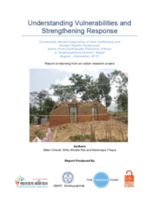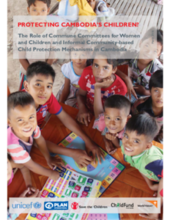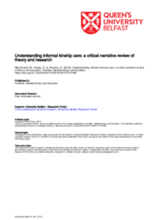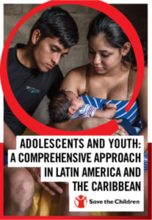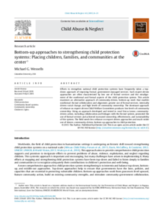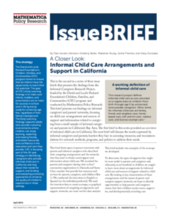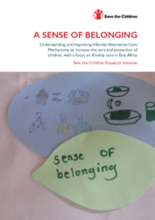Displaying 41 - 50 of 72
This report examines the effects the 2015 Nepal earthquakes had on vulnerable populations. It lists several concerns faced since the earthquake, which include the thousands of people who have lost their homes and children left unaccompanied.
This study was aimed at filling a gap in information on Commune Committees for Women and Children (CCWCs) and their function. This study examines the successes of CCWCs in implementing and achieving policy goals, and the roles they play in linking children and families to child protection services.
This article presents a comprehensive, narrative review of international, research literature on informal, kinship care.
This document discusses the comprehensive approach used by Save the Children to promote synergy between personal autonomy and economic development.
This presentation from Innocenti’s Expert Consultation on Family and Parenting Support focuses on informal supports for families and on incorporating research into practice.
This article examines an alternative approach to child protection which consists of community-driven, bottom-up work that enables nonformal–formal collaboration and alignment, greater use of formal services, internally driven social change, and high levels of community ownership. The article offers a case example of a community-driven program in Sierra Leone.
This brief from Mathematica Policy Research presents findings from the Informal Caregivers Research Project on informal caregivers’ and parents’ networks in the US. The research focuses on child care arrangements and sources of support and information related to caregiving.
This article describes a group of Elders in the Lax kw’alaams community of British Columbia who provide support and mentorship to the Lax kw’alaams children in care.
This report presents research conducted by Save the Children in East Africa. The aim of this research was to build knowledge on endogenous care practices within families and communities, especially informal kinship care, in order to increase the care and protection of children. The research on kinship care was implemented in Ethiopia, Kenya, and Zanzibar.
This article highlights the historical role churches have played in child protection stemming from biblical teachings and mandates as well as a current example of church involvement in child protection.

